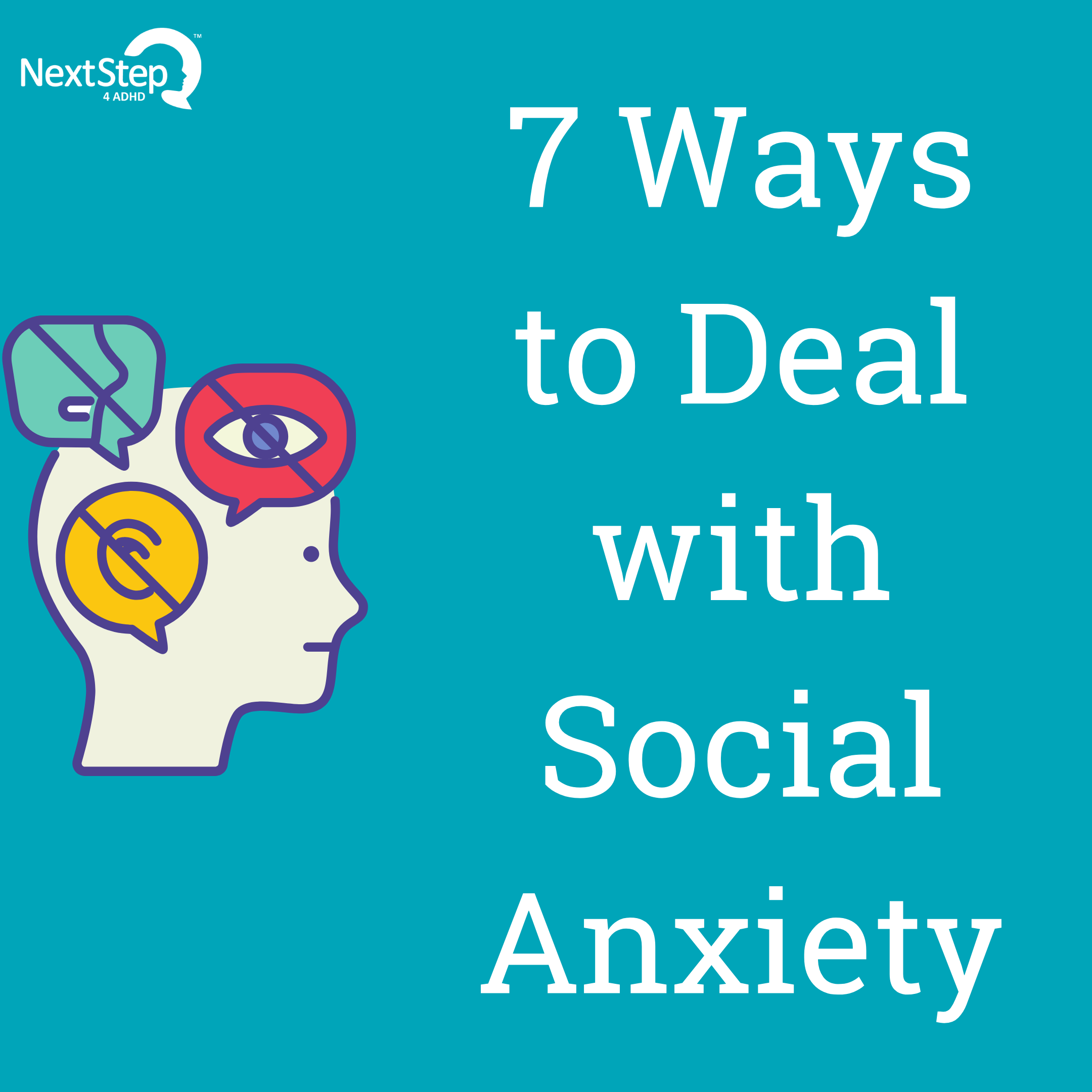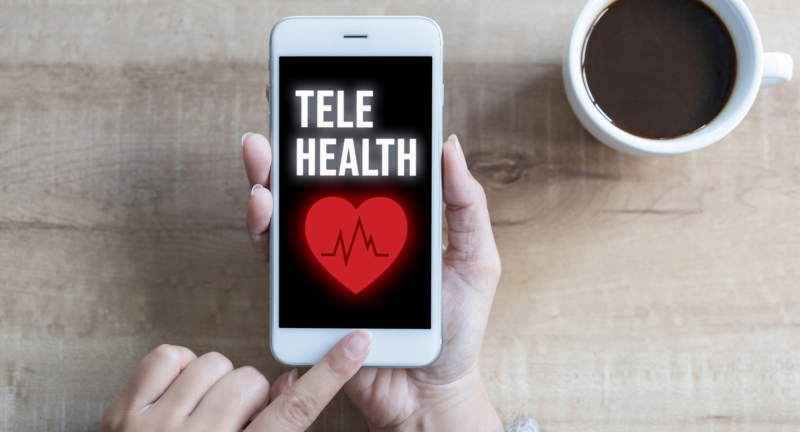
7 Ways to Manage Social Anxiety
Did you know that social anxiety is just one type of anxiety? There are five different anxiety disorders: generalized anxiety disorder (GAD), obsessive-compulsive disorder (OCD), post-traumatic stress disorder (PTSD), panic disorder, and social anxiety. Social anxiety, like other forms of anxiety, is characterized by intense worry. In the case of social anxiety, anxiety symptoms are heightened in everyday social situations.
At the Next Step, our team of experts is experienced in diagnosing and treating all types of anxiety. If you experience any of the symptoms of anxiety, we encourage you to visit us so can get the relief you need.
In the meantime, here are seven ways you can manage social anxiety.
1. Try Deep Breathing
Deep breathing exercises can help you reap the benefits of slow, steady breathing. Deep breathing exercises focus on deep breaths from your diaphragm. This is a useful skill as these exercises can also help relax your mind and body in uncomfortable social situations.
To explore two types of deep breathing, watch the video below. We’ll focus on triangle breaths and squares breaths.
WHY IT WORKS
Deep breathing triggers your parasympathetic nervous system and shifts your body away from flight or fight mode. Your parasympathetic nervous system is sometimes called the “rest and digest” system. So when this nervous system is stimulated, your body feels relaxed.
And when your body feels relaxed, your mind also feels relaxed, which can help you cope in social settings.
2. Spot Negative Thoughts (and Create Alternative Thoughts)
Dr. Dan Guy shares the first step to overcoming anxiety: “You’ve got to overcome the ANTS, or automatic negative thoughts.”
Automatic negative thoughts are automatic (and faulty) patterns of thinking can make social anxiety symptoms worse. There are many different types of negative thought patterns, including mind-reading, fortune-telling, and blame.
An ANT could sound like this:
- “Everyone here at this party knows how anxious I am.”
- “The whole restaurant is annoyed that I walked in here. They are all staring directly at me. ”
Negative thought patterns can be very bothersome, and unfortunately, they can become automatic. You can work to identify and overcome negative thought patterns, though. You can overcome negative thoughts by identifying them — and then coming up with alternative thoughts. For example, “Everyone is not ignoring me because I was late. They are simply engrossed in the speaker at the event.”
3. Learn to Face Your Fears
Avoiding social situations might temporarily reduce social anxiety, but in the long run, avoidance can severely impact your quality of life. Learning to face your fears can help you learn to cope so that you can enjoy social outings. If fear of public speaking is on your list, explore ways to face this fear in small, controlled settings. For example, you might volunteer to read the instructions out loud at a family game night. This is a smaller step and much more manageable than jumping into karaoke night with strangers.
There are many little things you can do on a daily basis to help you manage social anxiety. For example, arriving at dinner (or a meeting) early allows you time to mentally prepare. This also gives you the opportunity to greet friends (or co-workers) one at a time as they arrive.
4. Practice Self-Care
Self-care goes a long way in supporting your mental health. This includes:
- Eating a well-balanced diet
- Getting quality sleep each night
Researchers found that inadequate sleep can increase feelings of loneliness and make it harder to connect with others. Aim for 7-9 hours of sleep each night, especially before a big event. A solid diet can support your mood, energize you, and help you avoid blood sugar crashes.
5. Exercise
If you have social anxiety, exercise is helpful in a few ways. Exercise can:
- Relax you
- Boost your mood thanks to endorphins
- Provide an opportunity to practice social skills
- Supports your frontal cortex and strengthens your executive function skills (which then helps you deal with real or potential threats)
Bonus: Exercise in nature, if you can. Studies show that the combination of exercise and nature provides even more anxiety-reducing effects.
6. Learn about Social Anxiety
If you or a loved one struggle with anxiety, it’s important to learn as much as you can about the topic. You can
- Read books (here’s a list of anxiety books recommended by the American Anxiety and Depression Association)
- Take an online course (we have one that covers the link between anxiety and ADHD)
- Talk to your mental health care provider
Tip: Reading about anxiety can help you learn more about the condition, but even the act of reading can help you relax. Reading can relax your calm, reduce your heart rate, and ease the tension in your muscles. Researchers from the University of Sussex determined that reading can reduce stress levels by nearly 70%, according to a 2009 study. It works better and faster than other relaxation methods, like listening to calming music. Although, you can pair hot tea, calming music, and reading for a great relaxing activity.
7. Seek Help When You Need It
Even if you implement these strategies for reducing anxiety, you still might benefit from professional help. Remember, asking for help is never a sign of weakness. Here at Next Step 2 Mental Health, we provide comprehensive and compassionate anxiety treatment — no matter which type of anxiety you have. Whether you’ve been struggling with anxiety for years or current events have triggered your anxiety, we can help you feel better.
Give us a call at our Louisville, Kentucky office at 502-339-2442, or send us a message to request more information.
You can also click here to request an appointment with our convenient scheduling tool here.
References:
- https://www.hhs.gov/answers/mental-health-and-substance-abuse/what-are-the-five-major-types-of-anxiety-disorders/index.html
- https://www.sciencedaily.com/terms/parasympathetic_nervous_system.htm#:~:text=The%20parasympathetic%20nervous%20system%20is,muscles%20in%20the%20gastrointestinal%20tract.
Related Posts
Seasonal Marketing and Social Media: Navigating the Perfect Storm for Fall Anxiety
Is the thought of the upcoming holidays (and all of the marketing associated...
Preparing for Telehealth: What Parents Need to Know
As parents, you've no doubt taken your child to dentist appointments, eye doctor...


